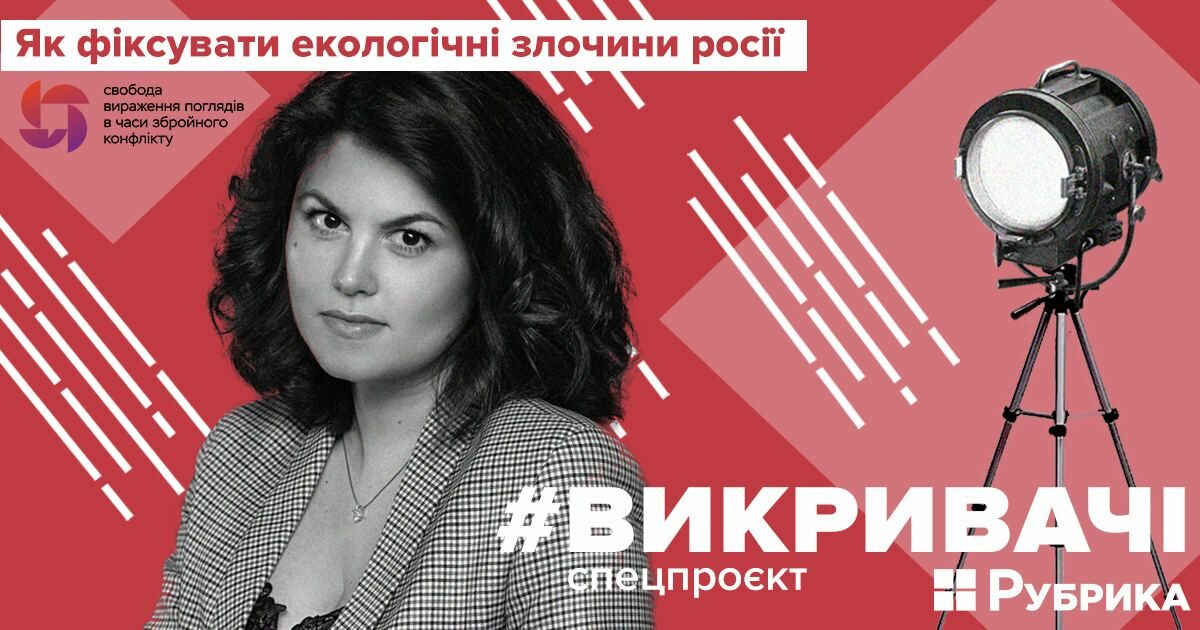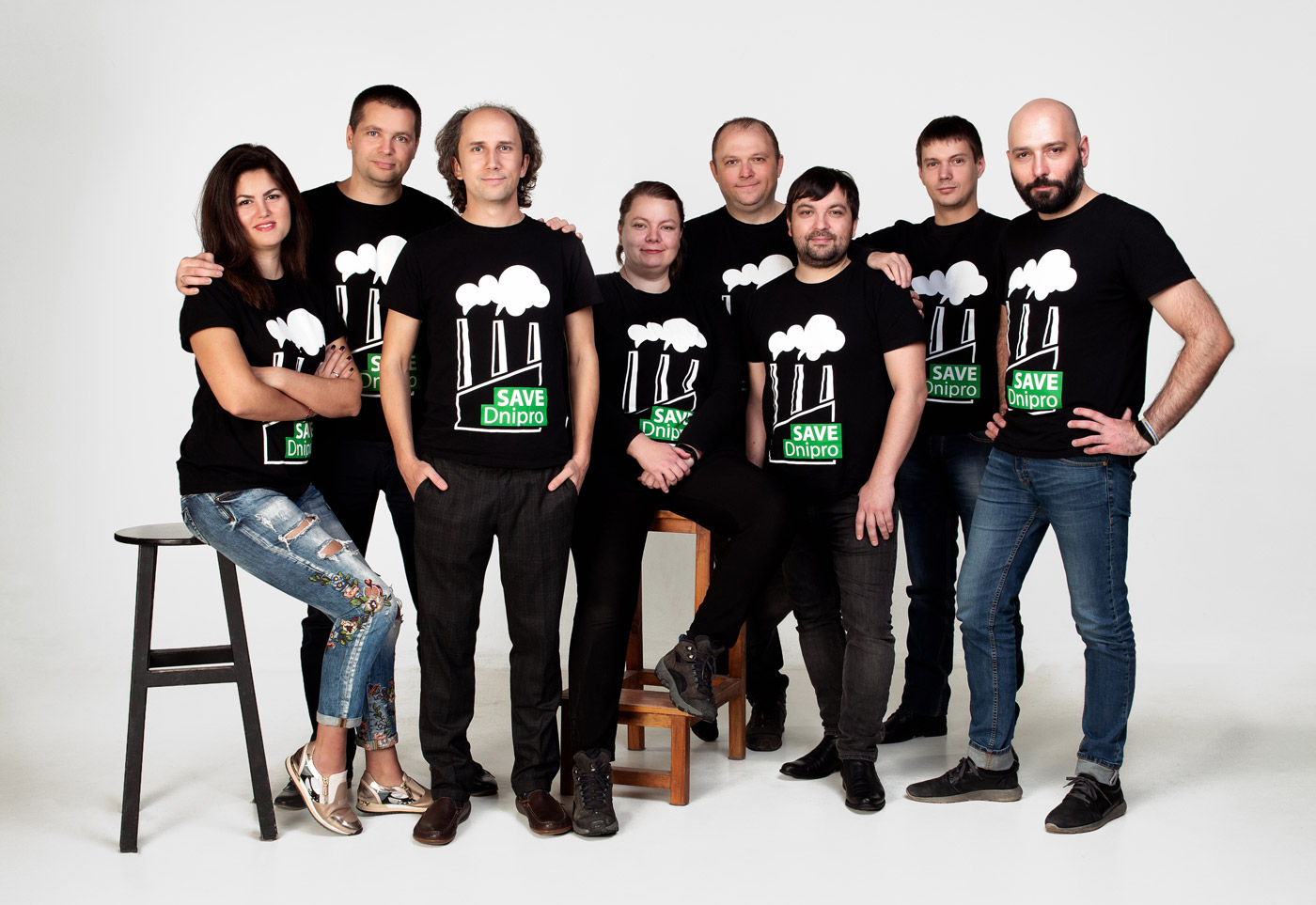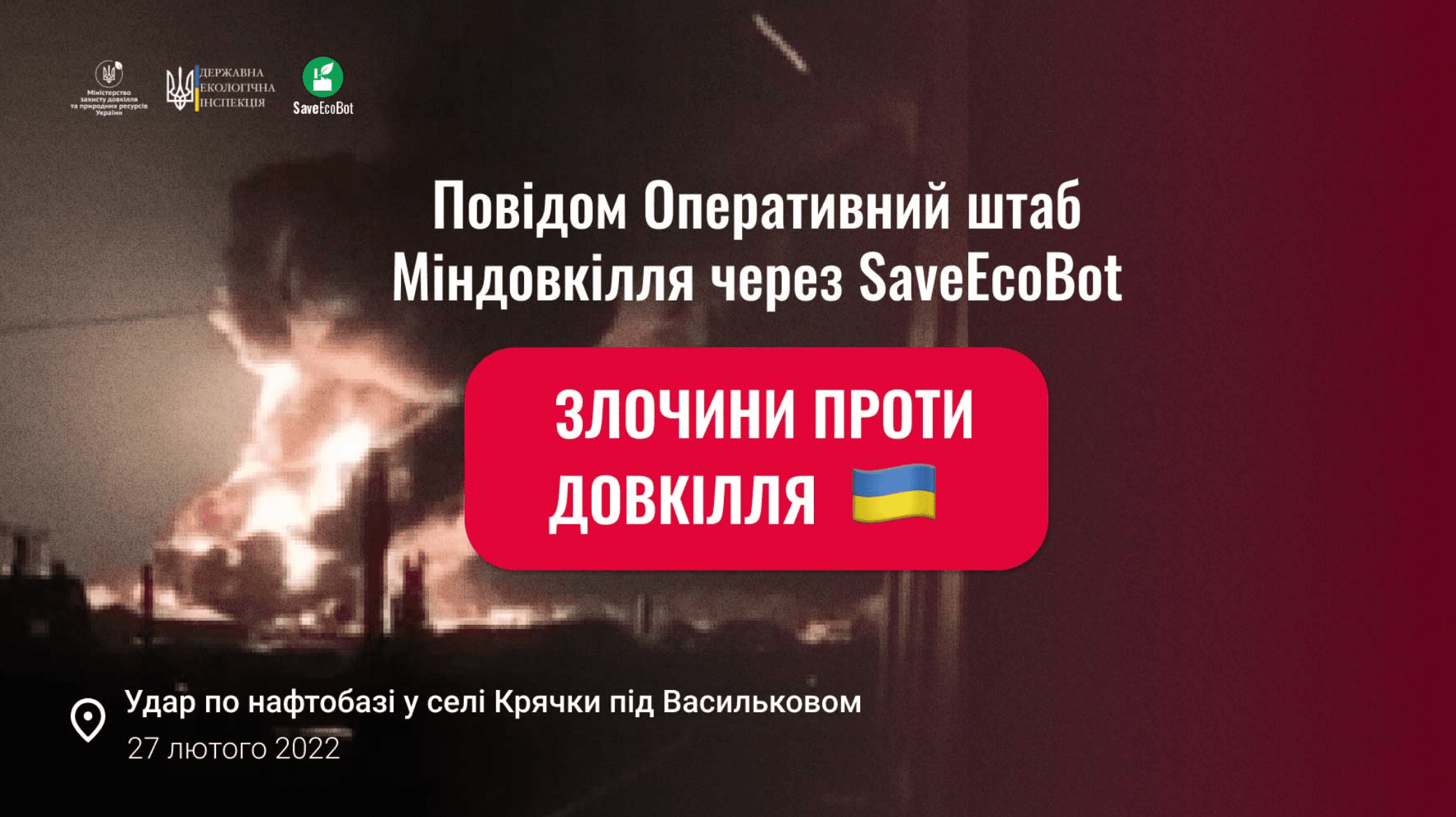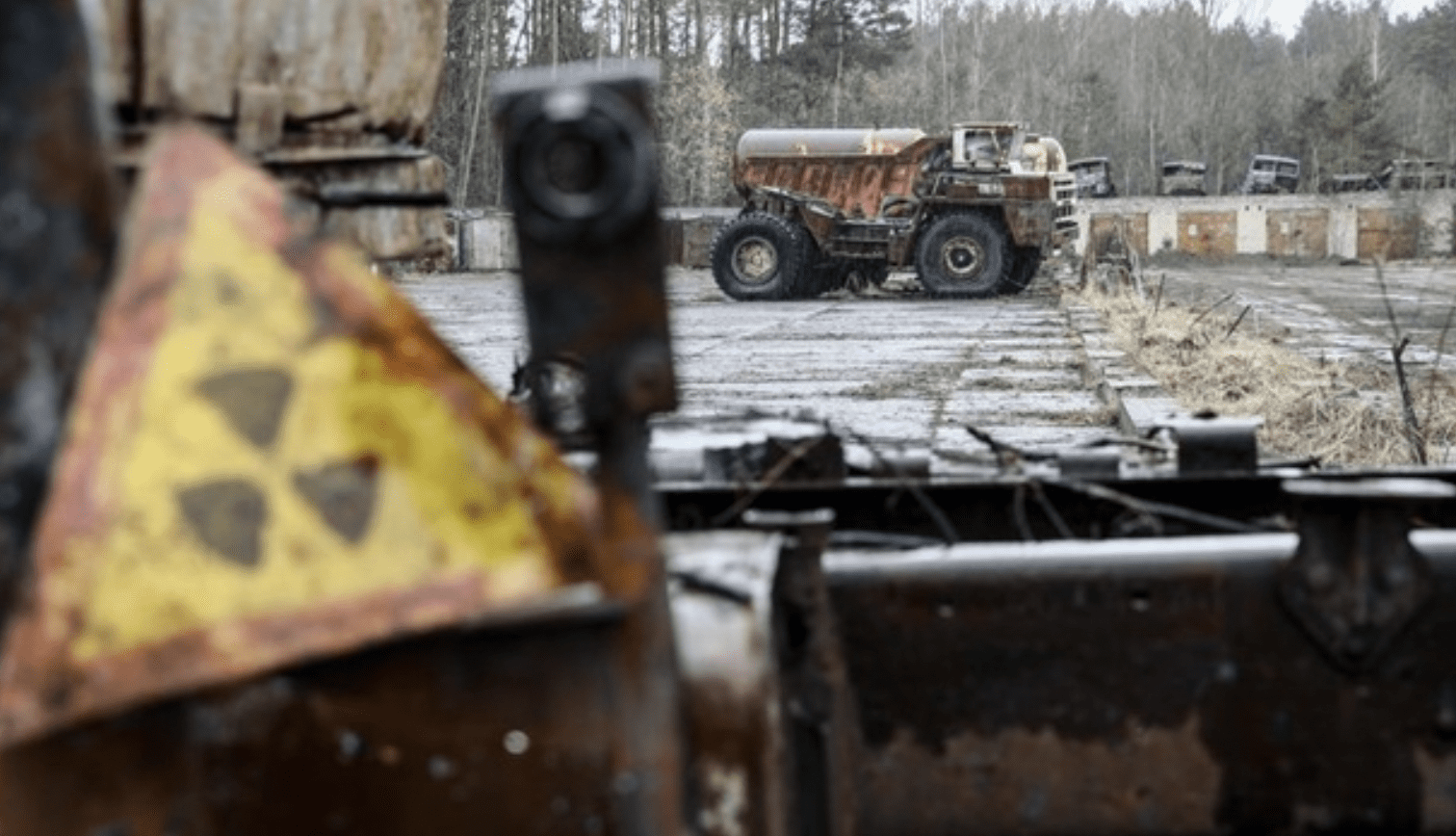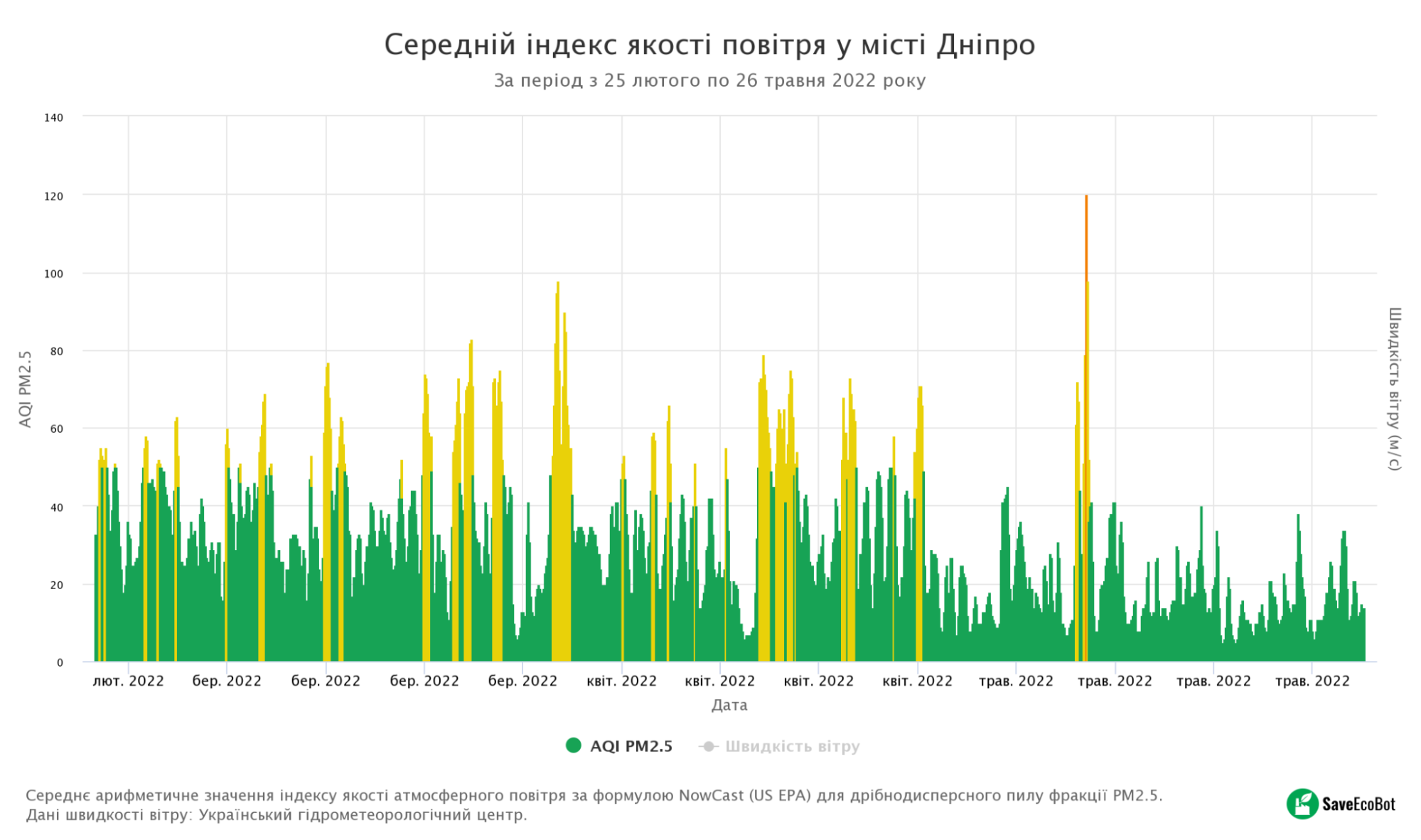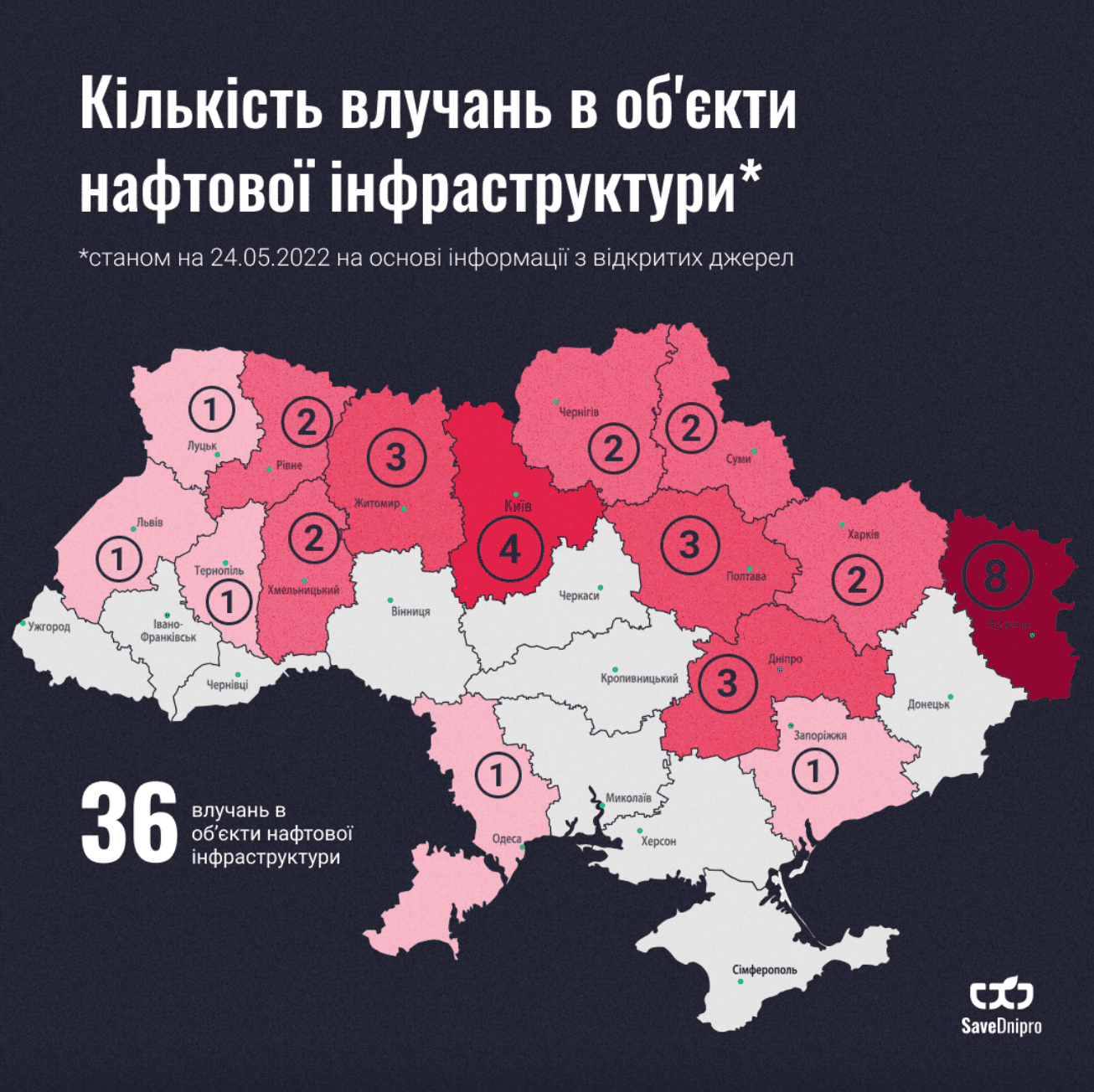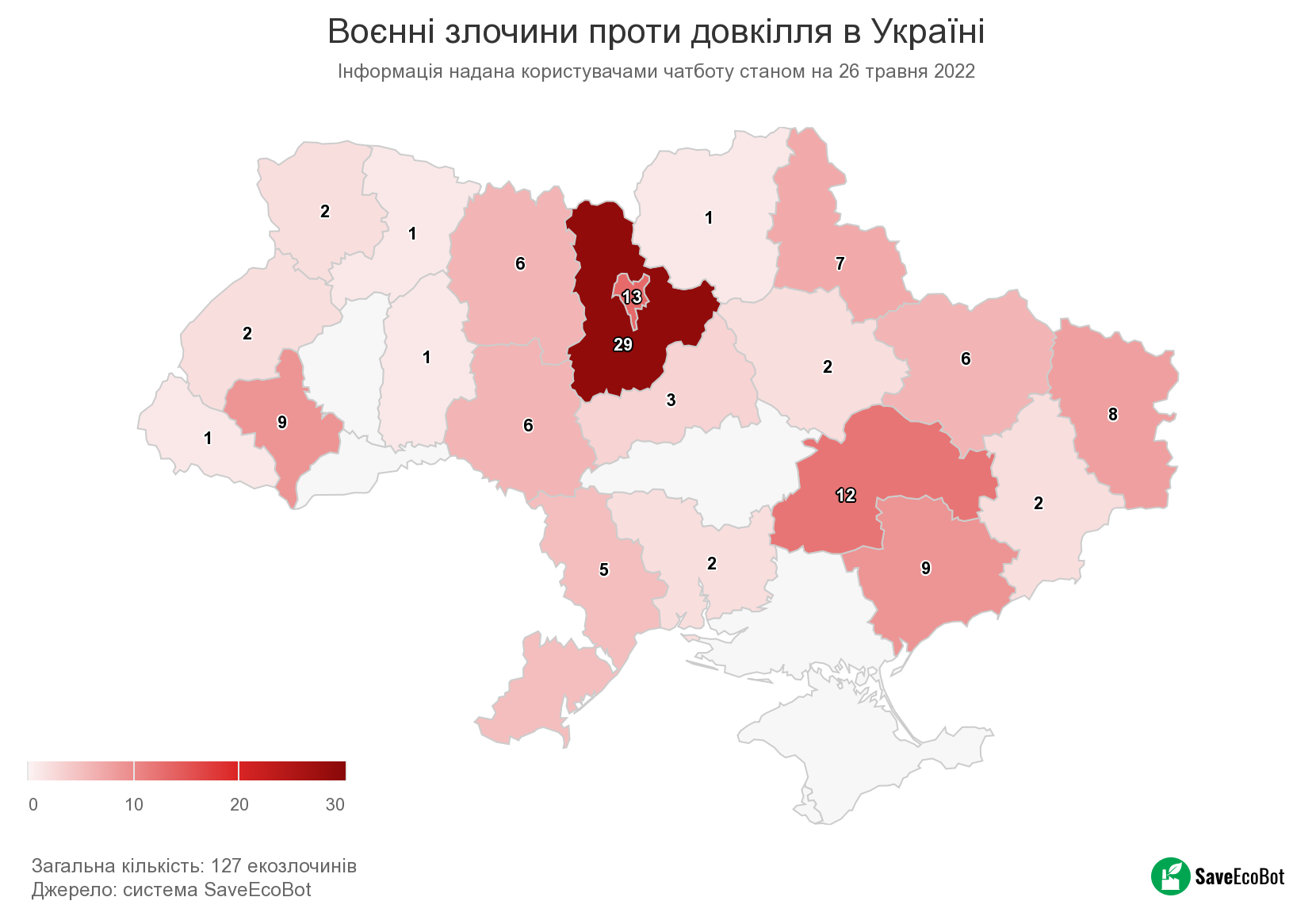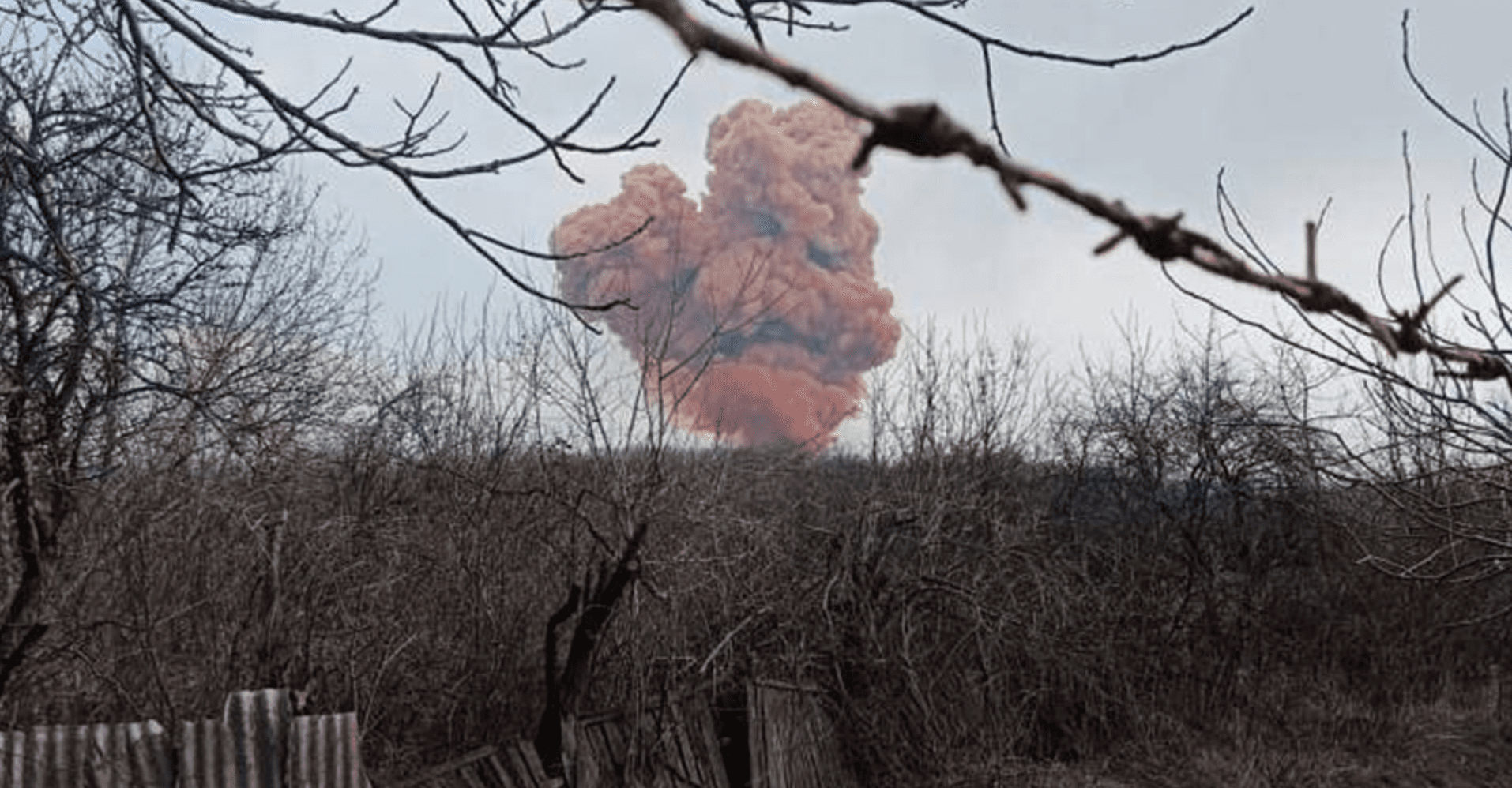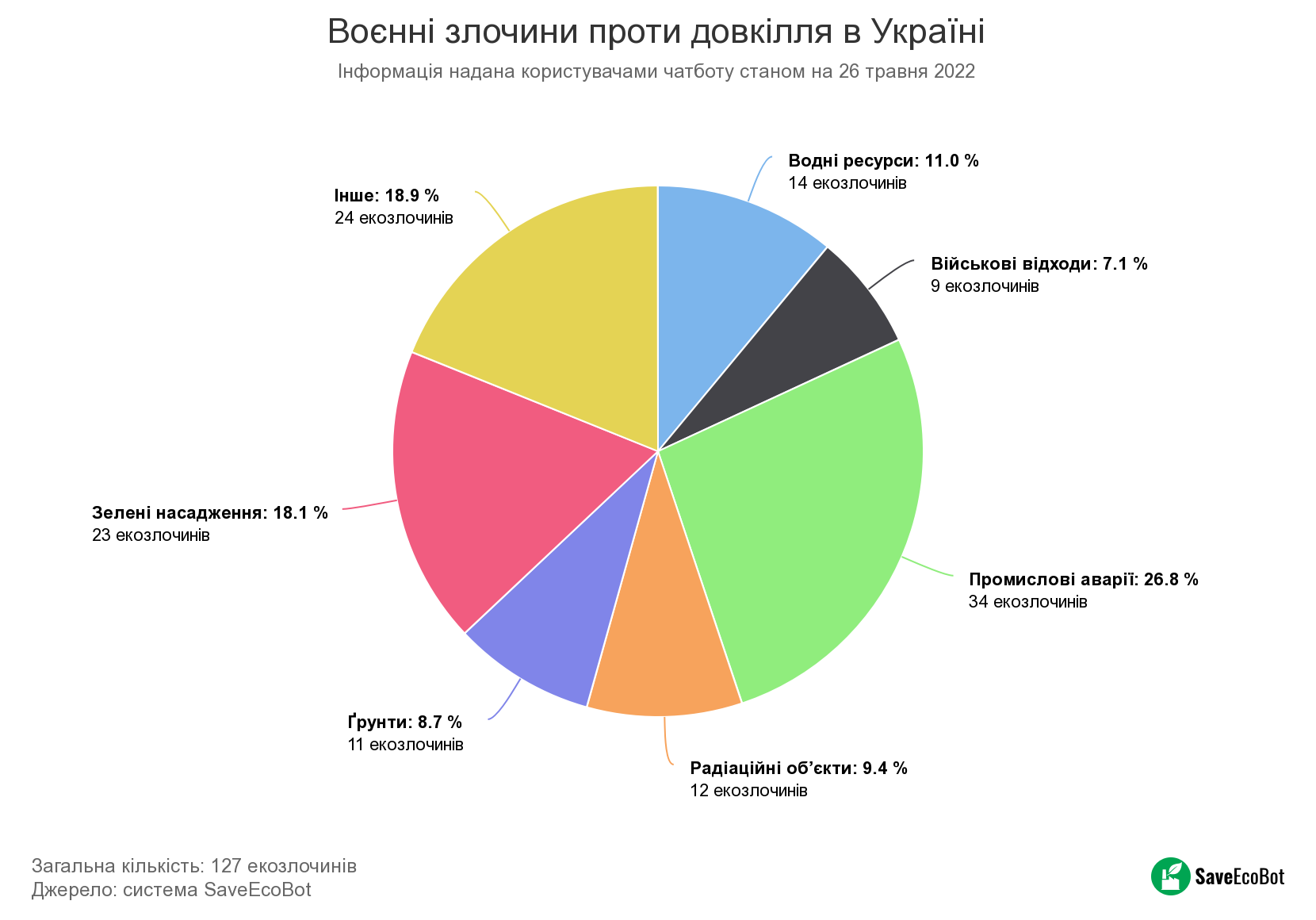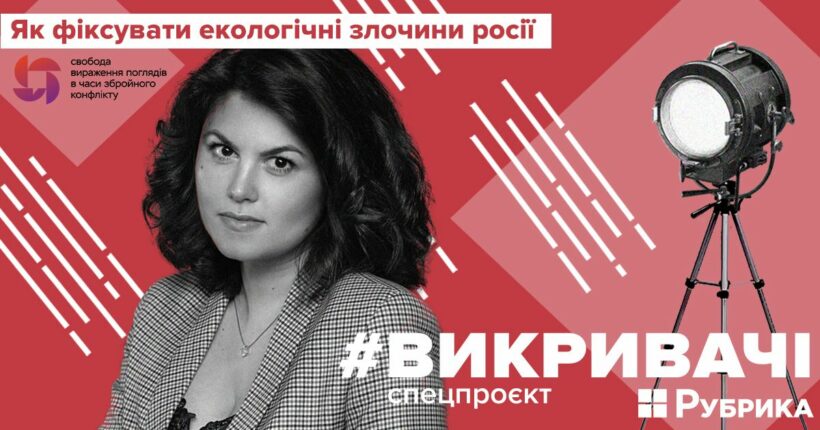
russian troops, who invaded Ukraine on February 24, are leaving behind many environmental problems: they destroy transport, water, heat, and electricity infrastructure, cause deforestation and fires, detonate nitric acid tanks, and seize nuclear facilities increasing radiation pollution.
From the first days of the war, SaveDnipro, a non-governmental organization with partner environmental initiatives, began documenting crimes against Ukraine's environment committed by the russian occupiers. The team does everything to reach russia's just punishment in the future and compensation for the damage caused to the environment. At the same time, SaveDnipro continues to run an awareness campaign and explain to citizens what environmental crimes are, how to act when you witness them, and, last but not least, how to save yourself and your family from their consequences.
We're asking the head of SaveDnipro, Iryna Chernysh, how local citizens can record crimes against the environment so that this evidence can be used in the International Criminal Court against russia and collect appropriate compensation from the enemy.
— How has the work of your team changed after February 24? Were you preparing for war?
— No matter how much we wanted to ignore and not take this threat seriously before a full-scale invasion started, we still understood it. Therefore, we prepared and developed domestic policy. Our starting point was the imposition of martial law or the beginning of military aggression in the regions where our employees are. We thought about how to secure our employees. We focused on financial support because we understood that if we needed to evacuate quickly, we would need money first, and then our internal communication, where we could inform each other in case of information access problems, etc.
On the morning of February 24, waking up from the explosions, my husband and son and I realized that we had to go (we had collected our things). I wrote to my colleagues, and we launched a policy mechanism for action during military aggression or martial law. We didn't have a moment when the organization was disoriented; we were all in touch from the first hours of the war. Despite the interruptions with payment systems, we've worked out the support system for our employees. We were in different cities, part of the team in Kyiv, part in Dnipro. Some began evacuating to Ukraine's west; others remained at home. But the main thing was that we had been in our working mode since the first hour of the war. We're the largest aggregator of environmental information on air quality in Ukraine out of all available online systems and collect complete data on radiation pollution during the war. We collected some of the info. After the events in the Chornobyl Exclusion Zone and at the Chornobyl nuclear power plant, we realized that it was necessary to differentiate the owners of such data and started collecting additional information.
— On the first day of the war, the russians captured the Chornobyl nuclear power plant. Do you think they understood the dangers of their actions for the planet? What signals from the Chornobyl nuclear power plant did you start recording?
— On the night of February 24-25, we saw jumps in the radiation background in the Chornobyl Exclusion Zone—up to 30 times. We've been actively approached by foreign media and the scientific community from different countries. State websites didn't work then because of russian cyberattacks. So, we were the only data source on radiation pollution in Ukraine. At that time, I was in Lviv. Not to create additional panic and understand what was happening in this area, we informed the Ministry of Environmental Protection and the press service of the Ukrainian Armed Forces. Unfortunately, we couldn't understand what was happening because no one answered; it was late at night. That night was disturbing because we had information and didn't know what to do with it, whether we could talk about it, whether it might be a technical glitch, and if our data were made public, it would create additional panic. In the morning, the Ministry said they were processing this information and that the Ukrainian Armed Forces had also received it. Then in about an hour, the Ecocenter provided data that the jumps were related to the soil layer raising because of the large equipment moving in the zone. But to this day, this information is under some criticism from the international community. These figures were likely the result of a mechanical impact on sensitive sensors. However, it's hard to say the truth now. The problem was that after the surge, the data disappeared. On the morning of February 25, they were no longer transmitted.
"In the first days, the Ministry of Environment requested to create a tool for collecting the russian army's war crimes against the environment"
— How has your work field changed with the beginning of a full-scale war? Have any projects been suspended?
— The war made substantial adjustments to our plans; we had big projects to dominate our team for the next two years. First, what we've been doing since the first day of the war and are still doing: in the first days, the Ministry of Environment requested to create a tool for collecting russian army's war crimes against the environment. At that time, the first tools for recording war crimes, in general, were already appearing. After talking to the team, we decided that we could add to SaveEcoBot a feature that would collect data from the public and pass this information to the operational headquarters of the Ministry of Environment. In about a week, we launched this feature and made it the main one in the chatbot.
Previously, our main task was air monitoring. It was also possible to report environmental violations by enterprises or other entities to initiate inspections, cover information on public participation in environmental impact assessment, and so on. Currently, there is no public participation in ecological procedures. It was essential because it gave rise first to our initiative and then to the organization. Through this public participation, we have greened the Prydniprovska thermal power station, the largest polluter of the Dnieper.
— Does the public now have access to environmental information?
— Currently, access to information is closed due to legal restrictions imposed by the state, but the issue of access to environmental information remains fundamental for us. Public participation in the recording of crimes is also one of the focuses we maintain our activities on today.
As I've already noted, as information from the Chornobyl zone became inaccessible, and the risk of russia's nuclear terrorism became more relevant, we realized we needed to gather as much data as possible. If everything is in order, people know that the situation is stable. If it is not in order, citizens also receive prompt, truthful information and can protect their lives and health. Given that all information in the country had become abruptly closed, it wasn't easy. But then we partnered with the Ministry of Environment, turned to certain companies that carry manual measurements, and the Ministry of Health, which conducts manual measurements in its regional centers, and until recently did so even in the temporarily occupied Kherson. Even in dangerous places, people continue to do their job, but because no large aggregator collected this info, all this data was for internal use. We managed to gather everything, and we continue to collect this information.
Also, last week, the Ministry of Environment presented the Eco-Zagroza service, where they used our data on the radiation background and air quality. Issues of digitalization and disclosure of environmental information today are our organization's main activities. We also work on fires. After all, fires, especially in the Chornobyl zone, can lead to environmental disasters. And in general, fires that provoke very high air pollution are crucial to record. That's why we use NASA satellite data on our service to obtain information on locations with high temperatures quickly. Yes, of course, there are places of hostilities, but still, this way, we can analyze the data.
"We now have 125 testimonies from people about environmental crimes. In most cases, it applies to industrial accidents. There's also a category about green belts, soils, radiation facilities, water resources, and military waste"
— How does your SaveEcoBot work? What information can the user send?
— As for our chatbot, the information is depersonalized, closed to users, and immediately passed to the Ministry of Environment headquarters. But we also keep statistics for ourselves. We now have 125 testimonies from people about environmental crimes. In most cases, it applies to industrial accidents. There is also a category for greenery, soils, radiation facilities, water resources, and military waste.
— You announced the number 125. There were so many notifications from citizens about environmental crimes. In what format do people send information most often?
— Our SaveEcoBot is in Telegram and Viber messengers.
- When opening a chatbot, a person clicks the option "testify about a war crime";
- chooses the category of crime,
- briefly describes the situation
- indicates the location
- uploads photos and videos and sends.
We don't disclose this information; it is automatically transferred to the Ministry of Environmental Protection. This information is displayed in the Eco-Zagroza service and is being worked on to form a register.
— What government agencies and enterprises do you cooperate with? Who do you share information about environmental crimes with?
— We've started fruitful cooperation with some central executive power bodies, for example, the Specialized Environmental Prosecutor's Office at the Office of the Prosecutor General, for providing environmental information for investigative actions in the environmental crime field. As we are the most prominent air data aggregator, it's the primary interest of the environmental prosecutor's office; we're preparing for them an analysis of air quality and wind direction to compile as much evidence and data as possible. We're also starting cooperation with Ecocenter, a state-owned enterprise that monitors radiation in the exclusion zone. The project will address forming the status quo for radiation data in the Chornobyl zone. We're also cooperating with the Hydrometeorological Center; we plan to help them digitize environmental information.
Another of our projects related to Kyiv's ecological analysis has undergone a significant transformation. We almost finished this study, and the war began. But since we already have a picture of pre-war Kyiv from an environmental point of view, this information can help prove the commission of environmental crimes in the courts. We're currently resuming cooperation with the Kyiv Metro. Our project to inform metro users about air quality at subway stations was to start on February 20. I think that Kyiv residents who use the subway will soon receive this information.
— How did you establish communication with the Ministry of Environment Protection and other government agencies? Do you see certain secrecy on their part under the pretext of martial law?
— We see and raise the alarm about the secrecy of information because environmental information is protected by the Constitution of Ukraine, the Aarhus Convention, and no order of the central authorities can be higher than these legal acts. What helps us to work with central authorities?
First. Experience. We've done this before. Before the war, we almost launched an extensive service for the Ministry of Environmental Protection on electronic permits for air emissions for businesses. It is one of the primary administrative services provided to the industry by the Ministry, including on paper. So we've created a system that digitizes the receipt of this permit, digitizes the permit itself, and creates a standard procedure for public participation in issuing such a permit. It's a system that reduces corruption risks and makes it impossible to ignore the public. But the war made adjustments, and we put on the project hold; although the system was ready, it only needed to be launched.
When we turn to a government agency, we usually create a winning position for both parties. We show that it is for the public and will simplify or improve some processes for the bodies themselves. For example, they want to get data on environmental crimes, and we want people to record these crimes, so we will undertake to automate this process. Yes, they will get the data, people will get the tool, and everyone will win.
The same, for instance, with the environmental prosecutor's office. They need data, we have this information, and we don't want it to be put on hold; we want it to live and be used for the benefit of Ukraine, so we create the necessary analytics, and they use it in their investigations. So this story will be a win-win for all of Ukraine.
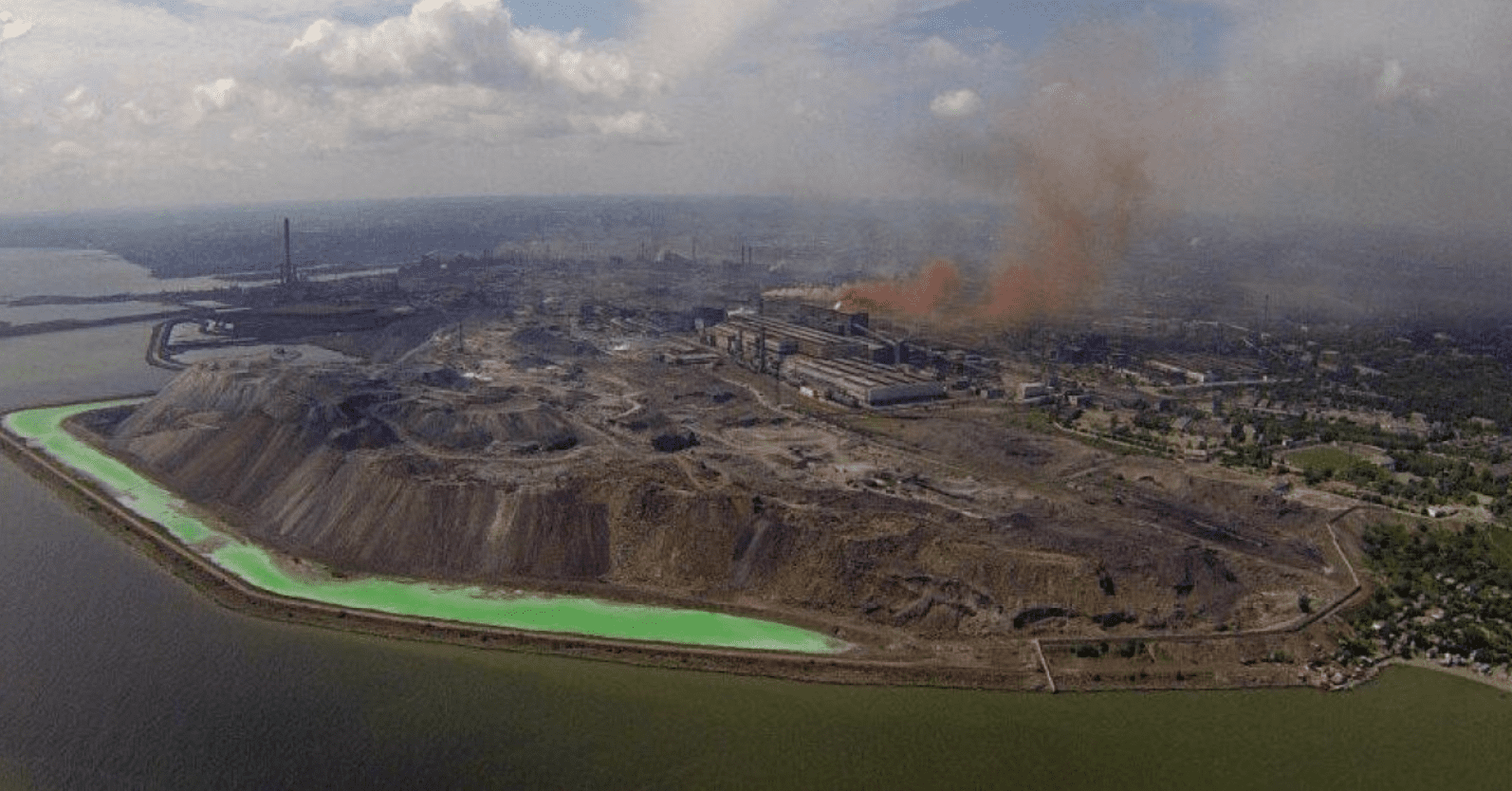
The technical facility at the Azovstal plant, where hydrogen sulfide is stored. The bombing of Azovstal threatens to leak into the Sea of Azov
"If there's no access to environmental information, the public won't be able to participate in the proceedings. If people can't participate, it won't be able to protect the rights of the Ukrainian population"
— What does the lack of environmental information access threaten?
— If there's no access to environmental information, the public won't be able to participate in the proceedings. If people can't participate, it won't be able to protect the rights of the Ukrainian population. We always work with open data and constantly promote the issue of data transparency in the environmental movement because the information is everything. Today, mentioning the war, a lot of information that is entirely irrelevant to civil security is being closed, such as data on the air quality of a particular region. How can air quality endanger the region's population? It can't. Or for example, how is it dangerous for Ukraine to see what and where they plan to cut down trees? It isn't. But corruption may be over here because no data means no control.
The same applies to the information on radiation from nuclear power plants. We're still fighting with the Energoatom energy company to reveal information about radiation at nuclear power plants. We already have data on Chornobyl, but not on other plants, although Energoatom has them. Energoatom shut down its websites, worrying about hacker attacks. But they publish data on electricity generation and no data on radiation. Now we have the most challenging time with them. We offer them technological solutions if they don't have enough technical capacity to separate environmental information from everything else. But it must be a national trend because under the pretext of the war, many, including the public, began to say that "it's not time." But war, like a litmus test, must show how protected the Ukrainians are on the environmental issue. I often hear, "it's not time for the environment." But people, unfortunately, forget that we can rebuild houses and build roads, but if we have an uninhabitable environment, then there's nothing we can do. The Chornobyl zone is an example. That is why we need to take care of this issue right now, and the country must show that our laws work, and the movement toward the best European practices is not just words but deeds and that public participation didn't stop on February 23.
— Can we say that by blocking access to information, the authorities are starting to "tighten the screws"?
— Yes. Of course, the reasons may be different. But it seems that the position is "we will close access to everything, and then we will figure it out later because now some of it can be used by the enemy." I understand that, for example, data from the Environmental Impact Assessment Register can indeed be used by the enemy in terms of industrial facilities. Then close only the data on technological solutions; these are separate documents. Dishonest government officials can take advantage of this opportunity by invoking war, further dissuading the public from participating in a process that may involve unrelated environmental interests, corrupt interests, or something else.
— Your organization originated and is based in Dnipro. At one time, you recorded data on the state of the air in this city. How do you assess the environmental situation in the city and region now?
— Now, we've recorded 11 environmental crimes in the Dnipropetrovsk region. As for air quality, for example, on May 6, we recorded a significant surge: at the norm of 25, the mark reached 120 points. Such a surge is probably related to a specific event. The previous spike was on February 24 at 8 am. Probably, the first airstrikes took place then, as in many other Ukrainian settlements. In general, the air is more or less stable, but we still feel the impact of the war on air quality. At the same time, we should bear in mind that industrial pollution has decreased because industrial enterprises in Dnipro now work less.
"War destroys ecosystems, upsetting the overall balance and affecting specific areas"
— In general, how do the environmental crimes of the russian occupiers affect the environment and human health?
— The impact on the environment is a story not separated from the quality of people's lives because the climate itself shapes the quality of life, besides basic financial needs and access to medicine. War destroys ecosystems, upsetting the overall balance and affecting specific areas. If we live in a region with polluted air, soil, and water resources, it will affect the quality of our lives.
We have had 36 missile strikes on oil refining facilities. We must understand that every destruction of such a facility means pollution of air, water resources, and soil, which will long affect the quality of life.
Due to water resources pollution, we drink water with a high content of heavy metals and other various hazardous compounds, and this impact will be long-lasting. Pollution will be critical given the number and how highly such facilities are dispersed in Ukraine.
No one globally has set a precedent for such a critical impact, so compensation will also be unprecedented. The longer the war lasts, the more industrial facilities will be destroyed or ruined; the more chemical weapons are used, the more complicated and shorter the lives of Ukrainians will be. Therefore, we will become a more unhealthy nation; it will reduce life expectancy due to the reduced quality of our products and resources that we consume from the environment.
— According to your data, what environmental crimes do the russian occupiers commit most often, and what is their geography?
— The leader in the number of environmental crimes is the Kyiv region, where 29 such cases have been recorded; Kyiv takes the second place with 13 facts of crimes, and 11 cases in the Dnipropetrovsk region. These data are provided by citizens who've become direct witnesses and users of our platform. Information about specific events has recently become more confidential than at the beginning of the war.
— How should a person act if they witnessed an environmental crime?
— We have video instructions on what they need to do to inform about environmental crime. They need to:
- capture damage in a photo or video. If it's possible to analyze the details (the area of damage to green infrastructure; if it's a missile hit on an industrial facility, then record which part was hit: for example, a missile strike at a landfill can cause spillage or hazardous substances into the environment, etc.). It's essential to gather as much evidence as possible without endangering yourself.
- Go to Telegram and Viber, type SaveEcoBot, and click "report a crime." Follow the simple instructions to answer the bot's questions.
In this way, a person can provide information to the operational headquarters of the Ministry of the Environment Protection, which further aggregates this data for international courts to compensate for environmental damage.
— If a person who has witnessed environmental crimes lives in the area where it happened (for example, in Rubizhne, where ammonia leaked because of russia's missile fire at warehouses), what should they know to save themselves and their family?
— With the beginning of the war, we started a Knowledge Base series about what people should do if they find themselves near the effects of chemicals.
- In general, first of all, people should protect themselves from inhaling these chemical compounds, i.e., moist masks in any way, and constantly change them.
- If the chemical gets on exposed body areas, it should be removed not just with water but, for example, with soda solution.
- If possible, don't be outdoors, but the recommendations differ depending on the chemical compound because some compounds are heavier than air, and some are lighter. The game begins with "sniff what it smells like Domestos or rotten eggs?"
We have developed recommendations; they're on our website and social media.
— Is there an understanding of how we will assess the damage to the environment and human health due to russia's war in Ukraine?
— It's one of the most complicated issues and challenges facing Ukraine today. We don't have a common approach because each area of the environment—to calculate the damage to air, soil, etc.—develops its methods. Moreover, Ukraine doesn't know which way it will go in international courts. After all, there are various courts, like stable and ad hoc arbitration ones.
For example, Kuwait set up ad hoc courts to deal with such crimes. But in Kuwait, these crimes weren't so significant, and their number was smaller. Therefore, it is impossible to compare the damage inflicted on Ukraine's environment today. But I know that the relevant working groups also have representatives of those working groups that have performed according to the Kuwaiti experience. So today, given what the authorities say, the most necessary thing is to gather all the information while proposing and analyzing the judicial paths that Ukraine will take after gathering information.
The first thing to do is to record as much information about a specific event as possible in time. Experts say the calculations may be different, and we will calculate later how much it will cost. But to prove that the amount of evidence is sufficient to argue in court with the aggressor state, which will appeal to Ukraine, "how was it before the war?" we need to gather as much information as possible about how it was before the war. It means analyzing data—satellite images, information on passports for waste disposal of industrial facilities, the state of sanitary zones, and more; recording evidence of russian missiles and wreckage; and analyzing soil or other damage. Forming this fundamental evidence base is Ukraine's task while choosing the path the country will take together with international experts, representatives of the World Bank, and other experts ready to provide financial and method assistance to Ukraine. But if we don't gather the necessary amount of evidence in time, then, unfortunately, it will not work.
"Task 1 is to protect environmental legislation through enhanced cooperation between environmental organizations and a broad civil society coalition, which is being created based on current challenges"
— What is your organization's current goal?
— We, as always, will protect access to environmental information so that the public has as much data as possible to create the various tools, precedents, and projects needed during the war. We will develop digital tools for citizens and government agencies to improve the background for work and activities through digital solutions. It has always been issue 1, and, as the war shows, it is the most pressing issue because, technically, our government isn't ready to be mobile. We will work on creating a coalition around gathering information and defending it. The next step, which we see as a priority, is to protect environmental legislation because war isn't a time to stop reforms. It's a period of active European integration, a time to reform ecological legislation, which lobby groups have always oppressed, and a time to defend the last years of work, which are very actively relegated back today.
For example, the draft law № 7282 (on amendments to some laws of Ukraine on priority measures to reform urban planning) was adopted very quickly without a proper environmental committee inspection and the consent of the relevant Ministry. This draft law abolishes strategic environmental assessment for the regions to be rebuilt, but it is the basis for further implementation of various projects. We cannot talk about the environmental impact assessment of specific projects if we don't have a strategic environmental assessment. If we don't have to go through environmental procedures, what kind of green restoration can we talk about? We know for sure that various regional officials, and elites, who will try to make more and faster money, will use this, and in the end, we will find ourselves in a situation perhaps even worse than it was before the war. Therefore, task 1 is to protect environmental legislation through enhanced cooperation between environmental organizations and a broad civil society coalition, which is being created based on current challenges.
Newsletter
Digest of the most interesting news: just about the main thing




